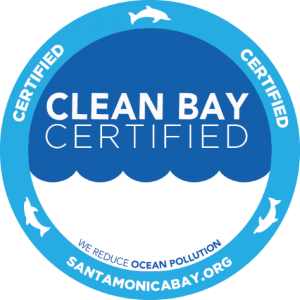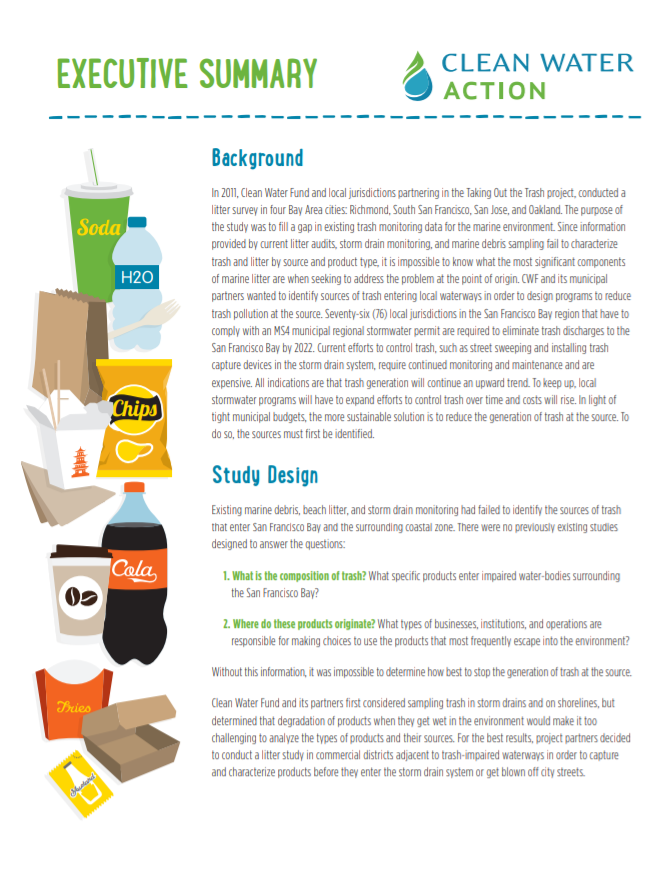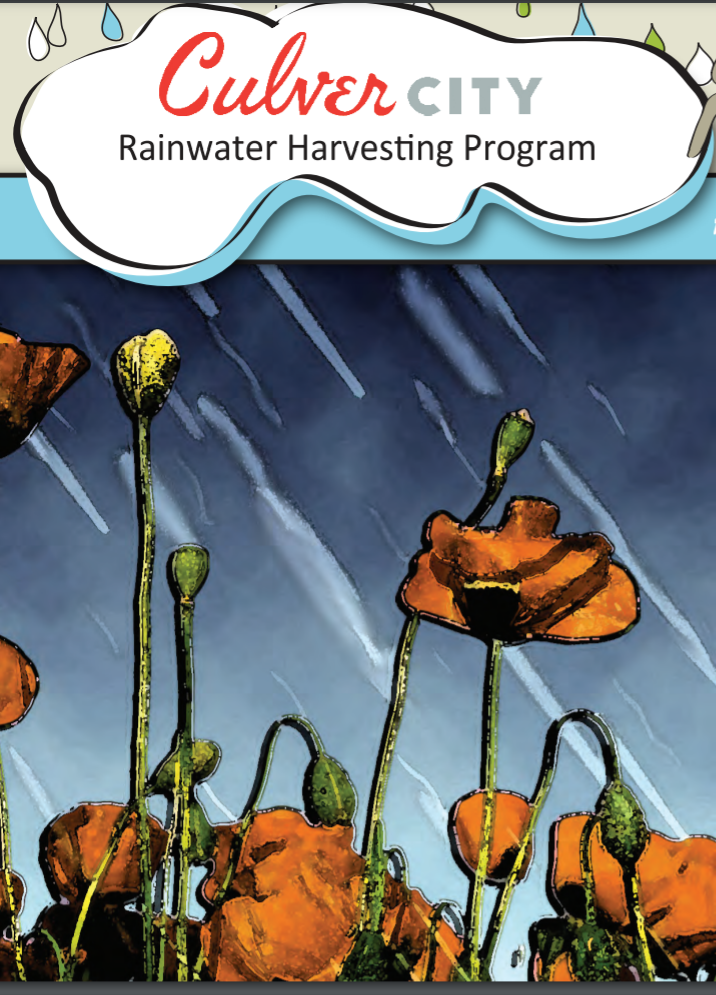Check out the Clean Bay Restaurant Certification Program’s 2016 letter of support from the L.A. Regional Water Quality Control Board.
Topic Category: Engaging Communities
2011 Clean Water Action Study
In 2011, Clean Water Fund and local jurisdictions partnering in the Taking Out the Trash project, conducted a litter survey in four Bay Area cities: Richmond, South San Francisco, San Jose, and Oakland. The purpose of the study was to fill a gap in existing trash monitoring data for the marine environment. This study results… Continue reading 2011 Clean Water Action Study
Culver City Rainwater Harvesting Program: A Homeowner’s “How-To” Guide
The City of Culver City Rainwater Harvesting Program is designed to help homeowners learn to capture rainwater for beneficial use and reduce the amount of rainwater flowing from their roofs into the storm drain system. This free “how-to” guide (2016) will help you implement the first steps of harvesting rainwater.
Clean Boating
With four million boaters, California has one of the highest levels of recreational boating in the United States. This large volume of recreational activity in our waterways can come at a cost. Boat-based pollutants such as sewage, used oil, household hazardous waste, marine debris, aquatic invasive species, and emerging contaminants impair our waterways. TBF’s Boater… Continue reading Clean Boating
Legacy Influence
Learn about The Bay Foundation’s past work and accomplishments below. While these projects are no longer active, each has contributed to our mission and played a vital role in enhancing the health and resilience of Santa Monica Bay and its watershed. Protecting Beaches LAX Dunes Restoration The LAX Dunes, located between Los Angeles International Airport… Continue reading Legacy Influence
Source Reduction of Single-Use Plastics
Over 300 million tons of plastic are produced every year globally and less than 9% is recycled. By 2050 plastic is expected to outweigh all fish in the oceans. Much of this marine debris results from disposable plastic products, specifically single-use disposable food and beverage packaging, that have a short life span and are quickly… Continue reading Source Reduction of Single-Use Plastics
Table to Farm
Food decomposing in a landfill releases methane, a greenhouse gas 86 times more potent than carbon dioxide. By composting locally, we reduce transportation associated with hauling waste to faraway processing facilities, which lowers smog-forming air pollutants and carbon dioxide emissions. Simultaneously, applying compost builds healthy soils, increases water retention, and enhances soil carbon sequestration. Table… Continue reading Table to Farm


